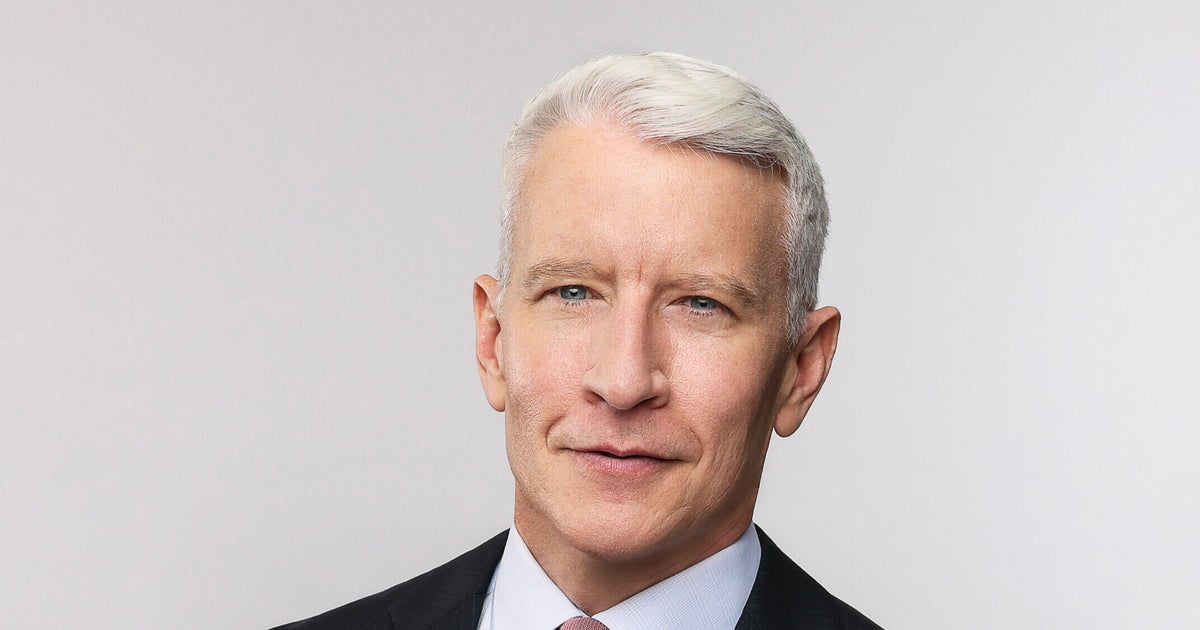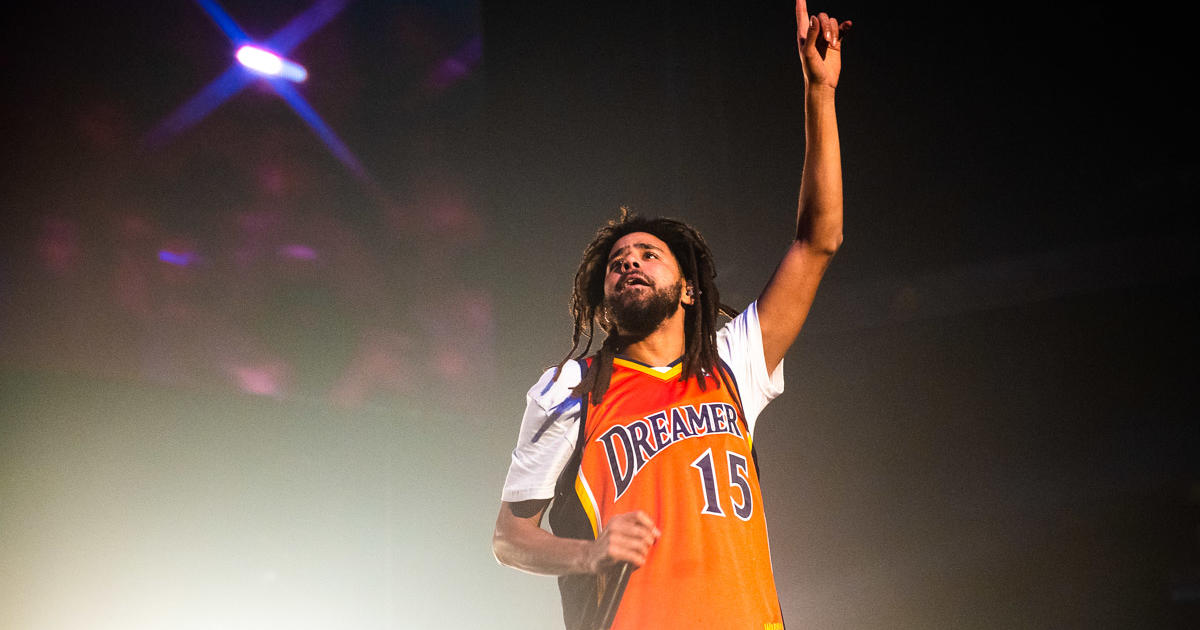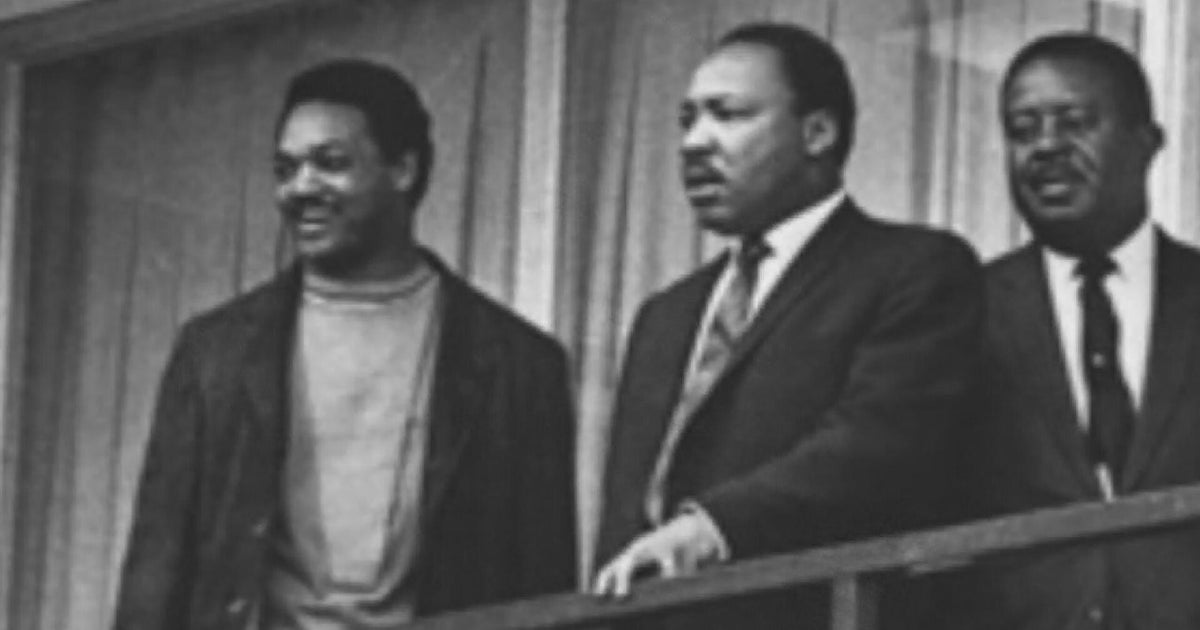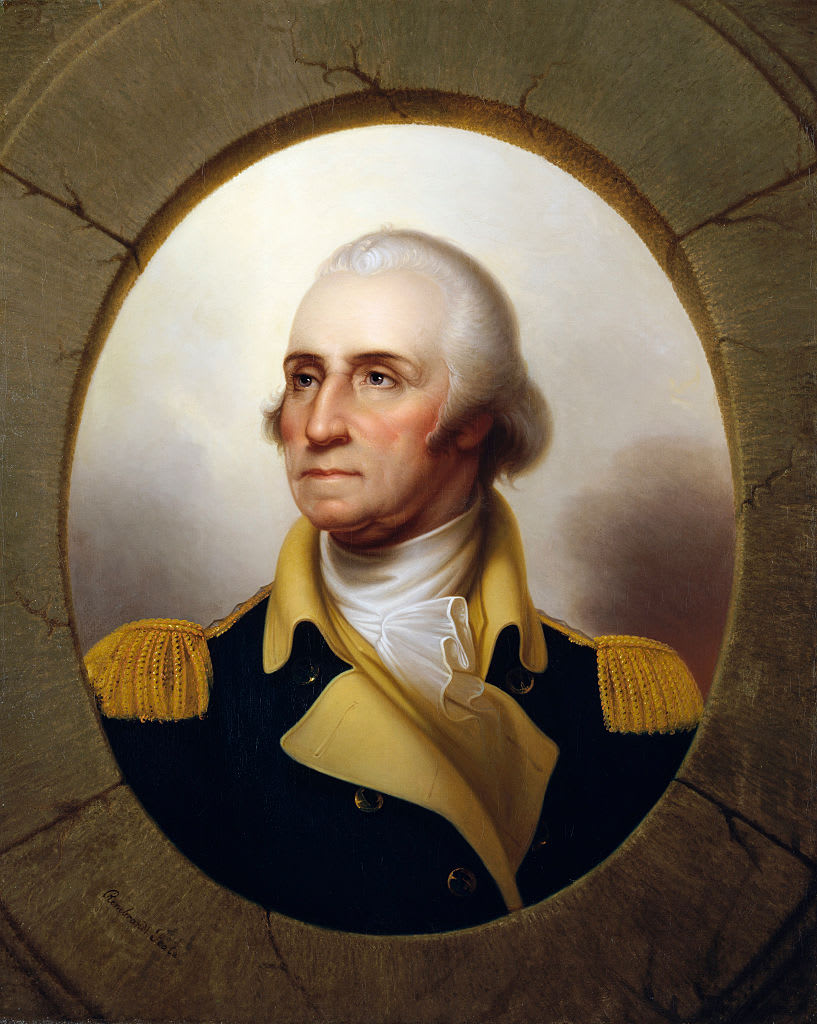Now he's 64
Even among rock and roll royalty there's a pecking order.
You ever notice at all those concerts for a cause there's one guy who always closes the show?
There is famous, very famous, and then there's Paul McCartney, CBS News Correspondent Jim Axelrod observes.
It might be painful to realize, but it's been 40 years since the Beatles first conquered America.
Now as he celebrates his 64th birthday, McCartney is still center stage -- recently completing a world tour promoting his latest album, "Chaos And Creation In The Back Yard," his 20th since the Beatles broke up.
Asked if the mostly positive reviews the album's received matter much to him, McCartney says, "I care. I care, yeah, I just don't dare read 'em in case there's some terrible little line in them."
The album is being praised for its depth and emotional complexity: a different tune from some critics who at times have derided his solo work as once-over-lightly ear candy.
"I said to myself, 'I'm gonna make a good album.' I gave myself a task," McCartney explains.
"Whereas normally you come in, something you do, it's your job, you just come in to work say, 'Oh, I wonder what's gonna happen today. Here's a guitar, oh, okay, let's do some.' But on this album, I thought, 'No, don't start. Don't, don't stop there. Actually just come in the studio with some stuff you're really proud of and then work this record, don't let anything escape.'"
Maybe McCartney brought something to the studio he just didn't have before: the sunny optimism of the "cute one" tempered by life.
"You know, I think when someone gets successful and famous as I did with the Beatles, I think the sort of assumption is he's fireproof, nothing can get to this guy," McCartney intimates.
"Well, I haven't found that. You know, I'm just some guy. You know, I, I'm pretty famous. I know people look at me like, 'Oh, you're just some guy.' Believe me, inside I feel like just some guy.
"There's this other guy who's amazingly famous and who's written all these songs and has got all this stuff. It doesn't alter who I am," McCartney says.
"You know, I'm not one of these people that just because I've done all that I now become Superman. You can't touch me. You know, you can touch me. I'm very, unfortunately, very reachable," McCartney admits.
And life has reached him. Losing a wife of 31 years to cancer as well as two of the lads with whom he made history.
Axelrod asked McCartney how he left things with John and George. McCartney offered a sentimental recollection of Lennon.
"John and I had had a lot of arguments through the Beatles break-up, but I was very lucky because we had reestablished our friendship," McCartney says.
"You remember little things about people. I remember sort of seeing him and he comes in and gives me a hug and says 'Touching is good.' I'll never forget that. Touching is good. So I do a lot of hugging now," McCartney says.
As for Harrison, McCartney recalls, "George I never really fell out with. We had a beautiful last meeting. It was very emotional for me. It was very touching. We sort of held hands and I realized we'd never done that 'cause you don't. You're Liverpool guys. You grow up together, you know? Here he was sort of terminal illness and we were holding hands."
McCartney adds, "I think, I think it all is informing me, yeah. I think, you know, you, you've got great memories, you've got great emotions.
"I think one of the things I like about getting older is you can free your emotions more."
Which would explain why "Chaos and Creation" is an album with echoes: a piano riff that recalls "Lady Madonna." Or take "Jenny Wren," a lovely, haunting relative of "Blackbird." This is what evolution sounds like in the mind of McCartney.
"When we were kids, George and I used to hang out and we had, we had one little party piece which was to show that we weren't stupid," McCartney says, adding that guitar players at that time were not viewed highly.
"So we used to do this thing by Bach that was our own little version of it, and we got it wrong," McCartney explains as he strums a guitar. "But we didn't know that and that's the bit where we changed it, I realized. And then I realized what I was doing was making and I made that same thing into "Blackbird," so it came from Bach to "Blackbird."
Continuing to play, McCarthy adds, "So then, so then because I've got this (guitar), the bass thing going with the melody, same style and then it just sort of goes into 'Jenny Wren.'
His past seems to coe-xist more comfortably than ever with his present. But like good neighbors, sharing bordering pieces of the same block, he maintains good fences too.
"If I'm writing a song and I'm stuck, I might then go, 'OK, what would we have done?' But it's not like, 'Johnny, help me baby.' You know, it's not quite like that. 'Yes, Paul, put that word in.' You know, it's actually come out a little bit like that, so I'm playing that down now. You know, it always informs you.
"I think who you are, what you are, what you've done, what you've written, what you haven't written."
Even by modern standards of celebrity, he's lived an extraordinary life. He's not just rich, he's a billionaire. He's not just adored, he's been knighted. He's not just admired, he's been elected to the Rock and Roll Hall of Fame twice.
Not exactly the resume of someone with something to prove. Someone who, say is embarking on a grind of a 2 1/2 month-, 37-city tour.
Axelrod wonders aloud to McCartney, saying, "The touring part of this, what's that given you? I mean, I, to be honest, I'm wondering, 'Wait a minute. The guy, he doesn't need money, he doesn't need adulation, he doesn't need validation.' What's it about?"
McCartney says, "You know obviously I ask myself that for those same reasons. You know, it's kind of hard work to put a big tour like this together, but the audience is so great and that's what it is. You know, it's the only point in your career where you actually get all these people sitting there (and) back this thing that you just felt. And it's pretty powerful. And it's, it really, it hooks you."
So what do you do: insulated, if not isolated by megastardom and yet needing exactly the kind of vital ordinary connection that your monster success seems to make so elusive?
If you're Paul McCartney, it's easy: you hit the road.
"But I've looked out at audiences, I've seen the effect some of these songs -- it's like, it's hard to be me and sing them," McCartney admits.
"You know because I mean, I remember just in Europe -- in Finland -- I saw this very stately, older man -- grey-haired man and his wife, a grey-haired lady. And he's just sort of standing there and he just had his arms around her. Very emotional," McCartney says.
"And she was just on his chest, you know, and I was just doing -- it was a Beatles song," McCartney says, adding "and I just was singing it, and I caught them in the audience, and you do. And it's just like a picture, it's like a Rockwell or something. Very emotional."
McCartney adds that "it's not every day you get that, but you get that kind of thing from an audience.
The singer says finally, "I mean, this is like, real."
This need to keep "real" in sight has been with McCartney for a long time.
Everyone, it seems, has a "McCartney moment," a special way some line of some song affected them. It's only natural to want something so profound to carry the same emotional weight for the man who created it.
But do the math: from "She Loves You" to "Yesterday," "Hey Jude," "Let It Be," "Maybe I'm Amazed" and a hundred more, that's a lot of moments for a lot of people. But gracefully, McCartney does seem to get it and, it seems, get something for himself.
When Axelrod explains that "Blackbird" is a special song between him and his daughter, McCartney says, "Oh, these are the moments we love. This is why I do it, man. This is why I do it."
Which is why at 64, McCartney is once again headed out in search of more of those moments he loves.
But McCartney shares a lot more with the kids' parents or grandparents. You ever wonder what happened to the last 40 years?
When asked if "When I'm Sixty Four" was on the tour's playlist, McCartney shoots back, "No. Perhaps, next year."
Sixteen when he wrote it and 25 when he recorded it, McCartney is now living it and no, the age doesn't look or feel like what he thought it would.
"You know losing John, losing Linda, losing George. You know these are all very sort of difficult things to deal with obviously," McCartney says.
And there are new difficulties to deal with. Last month McCartney and his second wife, Heather Mills, announced they were divorcing after nearly four years of marriage.
No one's long and winding road is without its bumps. But look at Paul McCartney as he turns 64. He seems to be humming along at a pretty good clip. He may just need to update a few lyrics.
"I was on holiday and there was this lady and she said, 'I play piano in an old people's home,' McCartney recalls, adding that the woman admitted playing Beatles songs.
"I hope you don't mind," McCartney remembers her asking. "I said, 'Of course I don't.' I said, 'What song is it?' She said, 'Well, it's "When I'm Sixty Four.' I said, 'Great,'" McCartney says laughing.
"But I had to actually change the lyrics," she said. "I play when I'm 84 because 64 doesn't seem very old to me."



